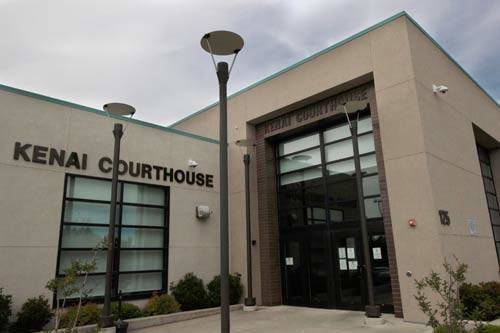The Alaska Judicial Council nominated four candidates for the Kenai Superior Court’s vacant seat. The governor will have 45 days to appoint Roberta Erwin, Jason Gist, Daniel Schally or Shawn Traini.
Schally also applied for and was a finalist for an opening on the Kenai Superior Court earlier this year.
Erwin has lived in Alaska for 49 years. She graduated from the University of Puget Sound School of Law and has practiced law for more than 24 years. She is currently working in a private practice in Anchorage.
Anchorage Assistant District Attorney Jason Gist has been living and practicing law in Alaska for 14 years. He is a graduate of the University of California, Berkeley, Boalt Hall School of Law.
A graduate of the University of Utah, S.J. Quinney College of Law, Traini has lived in Alaska for 33 years and serves as an assistant district attorney in Palmer.
A total of eight applicants were vying for the seat on the Kenai Superior Court. Anchorage attorney Roberta C. Erwin; Kenai Magistrate Judge Martin C. Fallon; Anchorage Assistant District Attorney Jason Gist; Kodiak Assistant Public Defender Hatton Greer; Kenai District Attorney Scot H. Leaders; Valdez District Court Judge Daniel Schally; Kenai Assistant District Attorney Samuel D. Scott; and Palmer Assistant District Attorney Shawn Traini have all applied to replace Superior Court Judge Charles T. Huegelet, according to a July 30 Alaska Judicial Council release.
Huegelet retired last month after 15 years on the Kenai Superior Court bench. The Superior Court seat is the second to open up this year in Kenai — Judge Anna M. Moran retired in July after more than a decade on the Superior Court.
The Alaska Judicial Council, which is a seven-member group made up of a Chief Justice, three public members and three attorney members, evaluate applicants on criteria such as, applicants’ case history, input from references, former employer and Alaska Bar Association surveys that allow the legal community to give opinions on the applicants’ legal skills and integrity.
Friday afternoon, the Alaska Judicial Council held a forum for people to give public testimony regarding the eight applicants. Alaska Superior Court judges can hear both criminal and civil cases brought before the state courts that don’t go directly to the Supreme Court. For cases already tried in District Court, the Superior Court can also act as an appellate court for those cases.
The Alaska Judicial Council will pass the names of the four nominations to the Governor-elect Mike Dunleavy, who will appoint one to the Kenai Superior Court.

